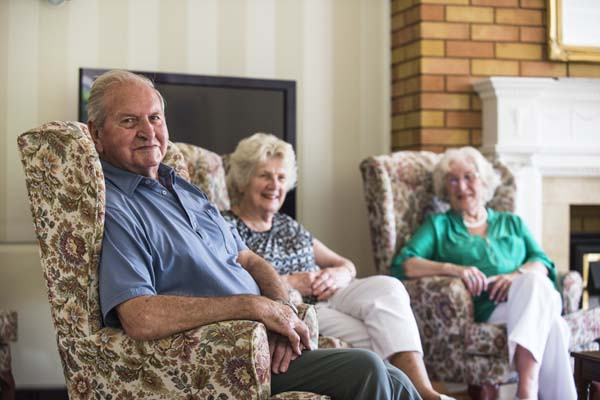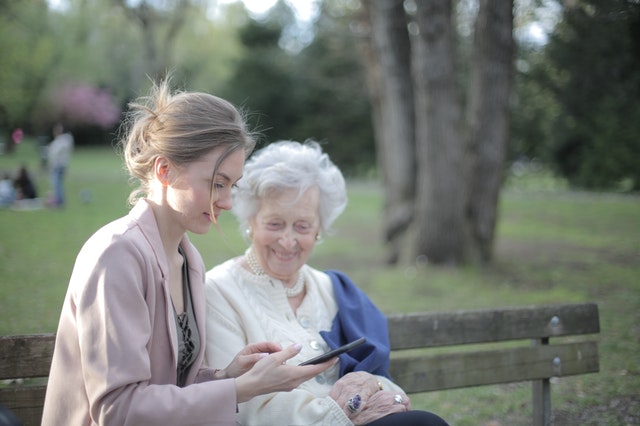
Reasons to Hire Respite Care for Family Caregivers
It can be challenging for family caregivers to take care of an elderly loved one every day, especially if he or she is on the verge of a stroke, Alzheimer’s, dementia, Parkinson’s, has a disability, or limited mobility. Receiving assistance from a friend or relatives can be helpful to family caregivers who need respite from their caregiving responsibilities. When it comes to respite care, Lincoln families can receive some of the following benefits.
1. Reduces Stress
Caregiving can be taxing for some family caregivers who have no prior experience or training in looking after the basic needs of a senior loved one. Many family caregivers can be at risk of caregiver burnout which may enhance obesity, weakened immune system, or lead to long-term health problems.
It is better to have a long-lasting relationship with an elderly loved one. However, family caregivers should make sure they get frequent breaks from their caregiving responsibilities to prevent extra stress.
2. Enhances Personal Health
Family caregivers who often take care of an elderly loved one might disregard their overall health and mental wellbeing. This may make family caregivers prone to several health issues which include seasonal illness, burnout, heart-related problems, or anxiety. When it comes to respite care, seniors and their families can receive much-needed help.
Getting respite care can allow family caregivers attend to their personal needs, take a nap, or visit another state. It can help family caregivers to keep up with an everyday schedule, attend regular medical checkups, or prepare and eat nutritious meals.
3. Offers New Perspectives
Caregiving can be complex and stressful for new family caregivers; they might require a different perspective after every few weeks to continue working at their best. Taking a week off can be helpful to family caregivers to develop new and effective caregiving strategies. It might allow family caregivers to search for simple ways of providing care to seniors and which strategy can be better suitable.
4. Prevents Isolation
While caregiving, family caregivers can feel lonely at times and can get angry on petty matters. Social isolation can be destructive for family caregivers and they should go out once a week to meet their friends or relatives. One of the simplest ways to enhance positive emotions and happiness is to regularly meet your close friends, relatives, or people whom you share your personal interests with. Make a schedule of meeting your friends, coworkers, or other family members in a nearby restaurant once a month.
5. Provides a Sense of Purpose
Even if family caregivers get along with their loved one, it can be difficult to remain energetic throughout the day. Family caregivers might feel frustrated or react harshly which are signs of extra stress or burnout.
Taking time off from the caregiving duties can help family caregivers declutter their thoughts and allow them to rethink why they are caring for an elderly loved one in the first place. After taking a break for a week or a month, family caregivers can embrace a renewed sense of purpose.
6. Restores Relationship
If family caregivers spend more time with an elderly loved one, their relationship with other family members might fade over time. The reason family caregivers should be enthusiastic about keeping a healthy connection with everyone and maintain social ties. On weekends, family caregivers can try to do something fun and stress-relieving which might include swimming, eating out at a restaurant, or dancing.
7. Promotes Relaxation
Living and caring for a senior loved one can be stressful for family caregivers if they are not looking after their personal needs and mental health. Family caregivers might feel worried about their loved one’s wellbeing, monthly expenses, or social ties. An experienced respite caregiver can help family caregivers to relax and get back their energy while providing tailored care to their loved one.
8. Emotional Support
Aging adults who often feel lonely or depressed at home might need individual care to boost cognitive abilities and mental wellbeing. By receiving respite care, seniors will have a companion who can provide emotional support and ensure they have someone to talk to. An expert caregiver can help seniors maintain social ties and become more outgoing if they have social anxiety.
Seniors can be able to brighten their mood by speaking to neighbors, friends, or respite caregivers who are trained in elderly care. A respite caregiver can also provide transportation and accompany seniors to any social or family gathering.
Marina Torres loves to write about helping and motivating others to find a way to happiness and working everything out despite the challenges of life. This is the reason she has chosen home care industry and is currently employed with Home Care Assistance of Lincoln, CA.




